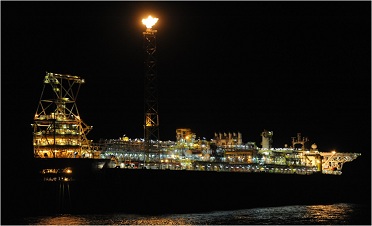Special topics
 It is now clear; the Ghana National Petroleum Corporation (GNPC) is no longer responsible for the regulation, including licensing, of the petroleum sector: that function has been transferred to the newly-created Petroleum Commission.
It is now clear; the Ghana National Petroleum Corporation (GNPC) is no longer responsible for the regulation, including licensing, of the petroleum sector: that function has been transferred to the newly-created Petroleum Commission.
This means the GNPC will focus on pursuing its commercial interests by operating just as any other oil company, engaging in exploration and development of oil fields.
This means, also, that any company seeking a permit or licence to operate in Ghana’s petroleum sector will have to apply to the Petroleum Commission and not the GNPC, as stipulated by Act 821 which establishes the commission.
According to the Act, the Petroleum Commission shall among other things, “receive applications and issue permits for specific petroleum activities as required under petroleum laws and regulations.”
The Minister of Energy and Petroleum designate, Emmanuel Armah Buah, clarified the matter when he was quizzed about the role of the two institutions during his vetting on Thursday, February 7, 2013.
“The law is clear; GNPC is to focus on operations and build its capacity as an operator and discover more oil for Ghana. That is GNPC’s goal. I am very happy that their own strategic plan focuses on making sure that they build that capacity and to venture into exploration; and I believe that you see the strategic alliances GNPC is making among others. I think this it is in a good direction.”
The GNPC, he added, has no role when it comes to regulation: “The law makes it clear it is the Petroleum commission that is in charge of regulation. The Ministry of Energy and the Minister will be in charge of policy. If I am given the nod, this is clearly what will be happening. If the GNPC has even played any role at all, it has been in an advisory capacity to the minister.”
Before the minister’s intervention, a lot of people were under the impression that the GNPC was still responsible for licensing, regulation, exploration and production as well as the disposal of petroleum products in the upstream sector.
Investors in particular were uncomfortable dealing with any other institution but the GNPC, due to its long-standing reputation as Ghana’s foremost petroleum sector supervisory body.
Former Energy Minister Joe Oteng Adjei announced late last year that the law establishing the Ghana National Petroleum Corporation (GNPC) was under review to make the national oil company focus attention on its commercial role and leave the function of regulating the oil and gas industry to the newly-created Petroleum Regulatory Commission.
“The aim is to enable GNPC to undertake roles in the whole value chain of the petroleum upstream sector as an operator, with its own resources, in the near-future. A restructuring of the organisation is currently underway to enable it to fulfill the above aim,” the former minister stated.
“Moving forward, we are actually positioning ourselves to become an operator in the oil and gas licenses. So we will be the lead-partner in the licence, just as the case of Tullow for Deepwater Tano, Kosmos Energy for West Cape Three Points etc.,” Mr. Theo Ahwireng, Geophysics Manager at GNPC, told the B&FT in a recent interview.
Established in 1983, the GNPC used to own drilling rigs and won contracts to drill in Angola. But due to inactivity and the de-emphasis on the finding of oil, the GNPC was reduced to just managing data and selling Ghana’s prospects rather than finding it themselves. In the process, the corporation lost a lot of its skilled staff to other countries and other companies.
While critics have spoken against the GNPC returning into active petroleum operations, others have hailed the new move — saying it will help win a controlling stake in the sector for the country.
Dr. Yao Graham, Coordinator of the Third World Network Africa, asked: “Do we want an economy where increasingly local companies, whether publicly or privately owned, are key actors across the economy; or we want to build an economy dominated by foreign investment?”
If the country chooses the first option, he says, there is a greater assurance that profits will be invested locally and the benefits will strengthen local capital accumulation, whilst the latter option will result in the “externalization” of profits.
“In all developing countries, from Saudi Arabia to Brazil, state-owned companies are very important actors in the petroleum sector. Take Petronas, the Malaysian firm that is winning concessions in Africa; the Chinese National Oil Company — these are all public enterprises. In a country where our domestic capital is weak, why not strengthen our companies to ensure a Ghanaian presence around a key resource?” he told B&FT.
Get the latest news and updates on Ghana’s oil and gas value chain by following Reporting Oil and Gas on twitter @oilgasghana and like our facebook page and get at us on Google+ and subscribe to our group.